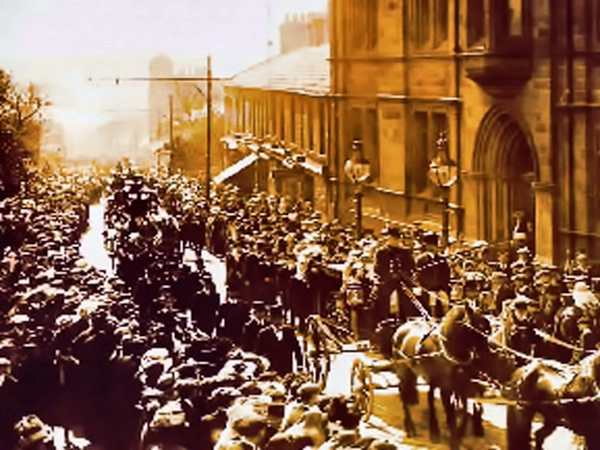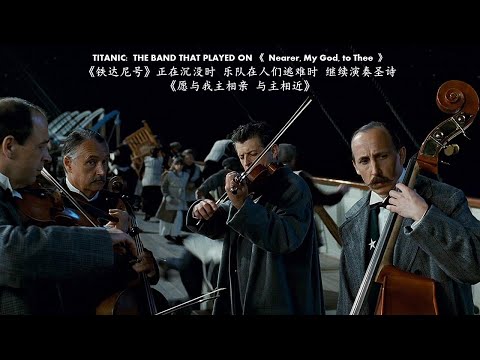Among the many stories of heroism during the Titanic’s tragic sinking, one of the most poignant is that of the band that played on. Led by Wallace Hartley, the eight musicians continued to perform as the ship sank, offering comfort and courage to the passengers facing the unimaginable. This band, composed of a quintet and a trio, became emblematic of bravery, and their story endures as a symbol of calm in the face of chaos.
Wallace Hartley: A Musician’s Journey to the Titanic
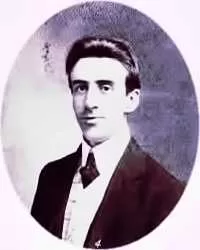
Wallace Hartley was born on June 2, 1878, in Colne, Lancashire. Raised in a musical family, Hartley’s father, Albion Hartley, was the choirmaster at the Bethel Independent Methodist Chapel, where Wallace’s love for music began. Encouraged by his father, Wallace pursued music lessons alongside his education, and he quickly developed a talent that would define his life.
In 1895, the Hartley family moved to Huddersfield, where Wallace continued to hone his musical skills. He joined the Huddersfield Philharmonic Orchestra while working as a bank clerk, balancing his passion with practicality. By 1903, Wallace made the leap to a professional music career, joining the Bridlington Municipal Orchestra as the first violinist. This move marked the start of his journey as a professional musician, which eventually led him to perform aboard luxury ocean liners.
Hartley’s career on the seas began in 1909 when he took a position on the Cunard liner Lucania, later moving to the Lusitania. By 1910, he had risen to the role of bandmaster on the Mauretania, the world’s fastest and most luxurious liner at the time, renowned for transporting the era’s wealthiest travelers across the Atlantic.
The Final Voyage: Hartley’s Assignment on the Titanic
In early 1912, the Mauretania sustained damage during a gale and was taken out of service for repairs, leaving Hartley temporarily unemployed. During this time, the Cunard and White Star lines negotiated a new arrangement with Liverpool music agents, CW and FN Black, who gained exclusive rights to supply musicians at lower rates. Hartley, now under contract with Blacks, resumed his career aboard the Mauretania in March 1912. However, upon his return, he received new orders: to report to Southampton and lead the band aboard the Titanic.
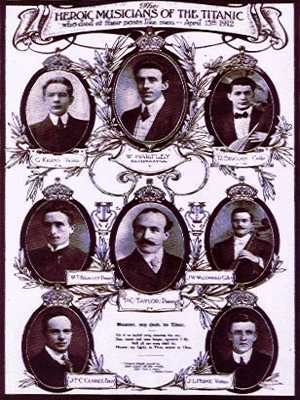
On April 10, 1912, the Titanic embarked on its maiden voyage from Southampton. Hartley led a quintet on the upper decks, playing for first-class passengers, while a trio performed in the reception area outside the a la carte restaurant and Café Parisien. The musicians’ performances added an air of luxury to the voyage, their presence a staple of first-class comfort.
The Night the Music Played On
On the night of April 14, 1912, the Titanic struck an iceberg, and chaos ensued. As passengers gathered in the first-class lounge, Hartley and his musicians assembled to play. Moving to the boat deck near the Grand Staircase, the band performed as passengers were guided to lifeboats. Their music, a mix of ragtime tunes and hymns, helped maintain a semblance of calm amid the growing panic.
Hartley’s aim was to soothe the passengers and prevent hysteria, though the band’s composed demeanor may have led some to underestimate the gravity of the situation. They played until the final moments, and as the Titanic slipped beneath the waves, all eight musicians perished. Hartley’s reported final words, “Gentlemen, I bid you farewell,” reflect the dignity and bravery of their last stand.
Honoring a Hero: Wallace Hartley’s Legacy
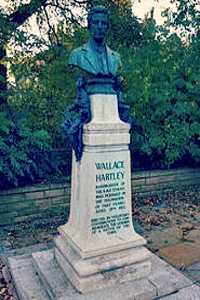
Nearly two weeks after the sinking, Hartley’s body was recovered from the sea by the Canadian cable ship Mackay-Bennett and was identified as body 224. He was returned to Liverpool and then to Colne, where he was laid to rest on May 18, 1912. Over a thousand mourners attended his funeral, and an estimated 40,000 people lined the route to the cemetery, paying their respects to the bandleader whose courage had touched so many lives.
In 1915, a public memorial was erected in Hartley’s honor on Albert Road in Colne, near the Bethel Chapel where his musical journey began. His story continues to resonate, captured in the 2000 Millennium mural and commemorated by the renaming of a local pub as the Wallace Hartley—ironically, a nod from the same community where his Methodist roots took hold.
The band that played on remains a powerful symbol of selflessness and composure. Wallace Hartley and his fellow musicians are remembered not just for their music, but for their humanity—a timeless reminder of courage in the face of disaster.

